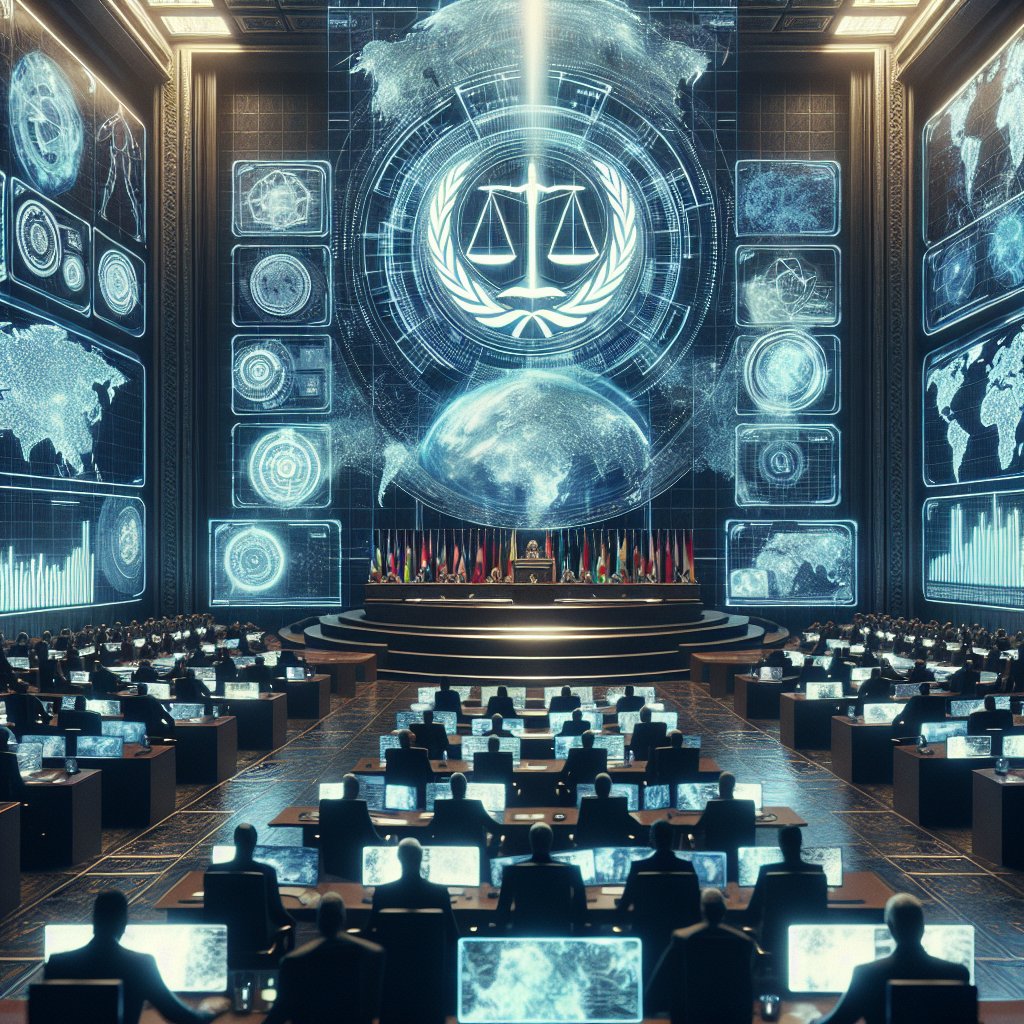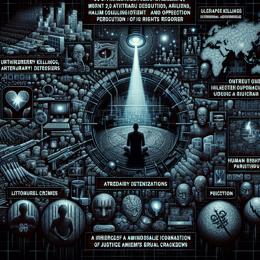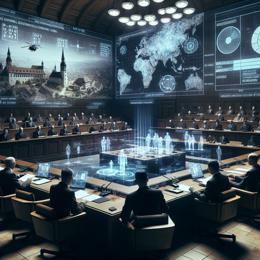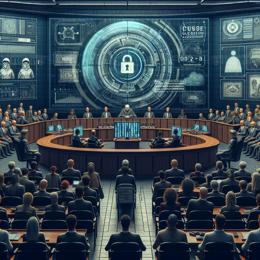Image created with AI
ICJ Upholds January Measures for Gaza, Rejects South African Request for Urgent Action in Rafah
The International Court of Justice (ICJ), the principal judicial organ of the United Nations, has reiterated the dire need for immediate action in the Gaza Strip, highlighting the critical situation in the city of Rafah, while choosing not to impose additional provisional measures. The ICJ’s recent declaration comes in the wake of an "urgent request" filed by South Africa, addressing Israel’s military offensives and their alignment with provisional orders issued by the court in late January 2024.
In January, as conflict escalated, the ICJ had instructed Israel to take all necessary steps to avoid genocidal acts during its military campaign in Gaza. However, South Africa, deeply concerned about the worsening humanitarian situation, implored the court this week to re-evaluate the state of affairs, especially with the looming threat of an Israeli ground assault on Rafah, a district in southern Gaza.
The ICJ’s decision was made public through a press release, affirming that the situation in Rafah demands urgent and effective action based on its Order from January 26, 2024. The order mandates Israel to comply with obligations under the Genocide Convention, a measure intended to protect Palestinians from acts that could be construed as genocidal.
According to reports issued by Gaza health authorities and mentioned in the ICJ's communiqué, the conflict has resulted in the deaths of over 28,000 Palestinians Strip-wide, with an unprecedented number of citizens being displaced. Rafah, initially deemed a "safe zone" by Israel, now hosts approximately 1.4 million people seeking refuge amidst the devastating bombardments that commenced on October 7.
Despite the grim figures and international warnings against further military escalation, especially from its Western allies, Israel maintains its stance against accusations of genocide and continues to contest South Africa's claims in the international court. The Israeli government asserts that South Africa's allegations lack factual or legal grounding and are not reflective of a change in circumstances.
The plight of civilians in Rafah is of particular alarm; hundreds of thousands have been forced to desert their homes per Israeli military directives, only to find themselves confined within a potential combat zone. South Africa's urgent plea to the ICJ highlighted these concerns, underscoring the catastrophic implications of a full-scale Israeli ground invasion which now seems ever more imminent.
The ICJ, while emphasizing Israel's accountability under the Genocide Convention, refrained from issuing a directive halting the military actions that have ravaged the Palestinian territory. Instead, the court's avowed focus remains on the compliance with existing measures aimed at preventing genocide.
The matter has captured international attention, reflecting the complexity of this longstanding conflict that has cost thousands of lives and thrown the region into humanitarian despair. The ICJ's role as an adjudicator highlights the legal avenues available for pursuing peace and justice, even as it encounters limitations in immediate conflict resolution. The court's authority rests on its capacity to facilitate compliance with international norms, but the tangible impact of its measures depends largely on the parties' willingness to heed its call.










